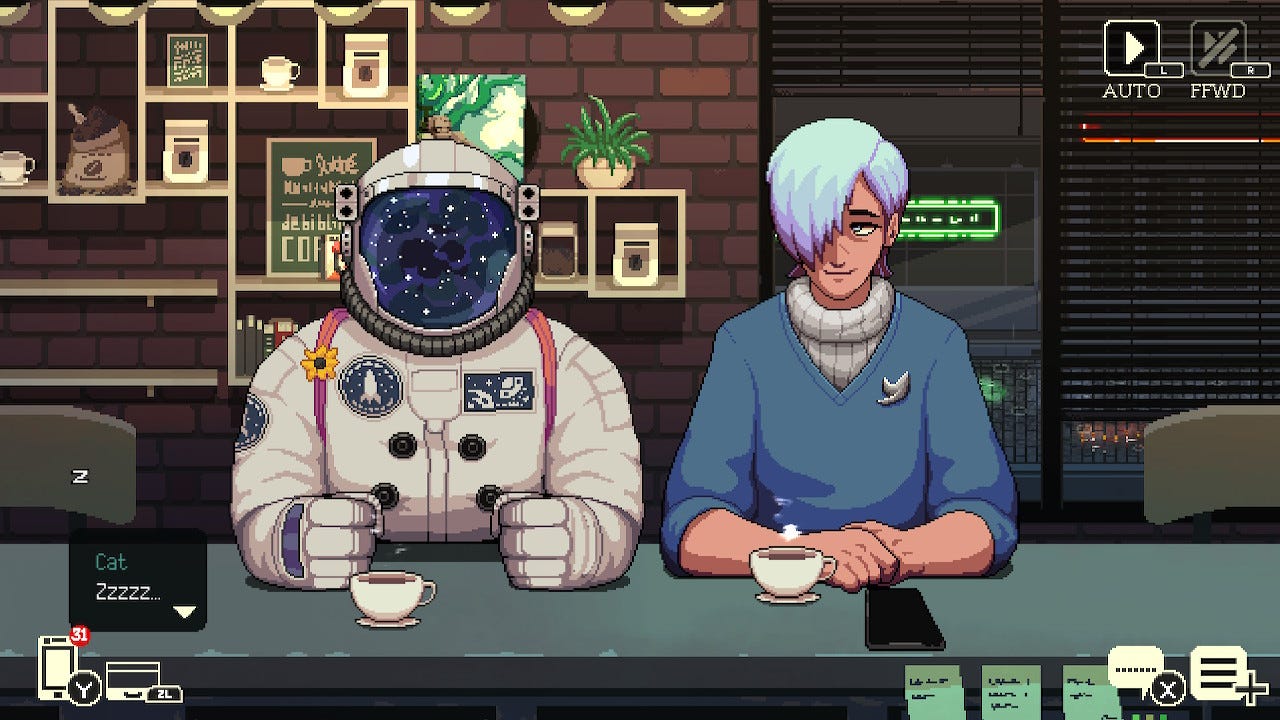
As someone who used to live and die by midnight lattes, playing Coffee Talk was a pleasant jaunt into the past when all I had were college deadlines and a much more resilient body. Now, caffeine after sunset sends me into a sweaty pain spiral, so it was easy to get sentimental over a game centered on sitting over a cozy brew in the dead of night. This charm and simplicity drew me in quickly, and the second chapter, Coffee Talk Episode 2: Hibiscus and Butterfly, is more of the same: the player is the enigmatic barista (and ostensibly owner) at Coffee Talk, a tiny cafe that only opens at night, and makes comforting drinks while listening to customers talk about their problems.
The game begins several years after the end of the first, and features previous regulars like neighborhood police officer Jorji and lifelong best friends Hyde and Gala. It's set in the same supernatural version of Seattle filled with otherworldly creatures, from orcs and satyrs to vampires and gnomes, with a "Main Six" list of recognized races and an excruciatingly slow integration process for other previously "unknown" peoples. Thankfully, Coffee Talk's slice-of-life focus helps it avoid the worst pitfalls of hackneyed fantasy-race stereotypes, as characters deal with relatable personal crises on a much smaller and intimate scale than, say, a hundred-year war between orcs and elves. For instance, a socially awkward banshee named Riona harbors dreams of becoming a soprano in an opera scene dominated by sirens, and the ever-exhausted Jorji will vent about his home life and relationship with his family.
The subtitle comes from two new teas - hibiscus and blue pea (also known as butterfly pea) flower - which are required to make new drinks like Zobo from Nigeria, or Teh Jahe Rosella from Toge Productions' home base of Indonesia. Unlike the first game which was purely drink-mixing and dialogue, this time the player also receives objects left in the cafe and must give them to the appropriate person the next time they come in; the player only gets one chance to hand over an item while serving said person their drink, which is stupidly easy to forget, and with a couple of exceptions, has no real impact on major character arcs. Objects also disappear after a certain number of days. Failing to give Riona another character's contact information, for instance, is a non-negotiable part of the main narrative, so she'll get hold of it despite the player's forgetfulness
